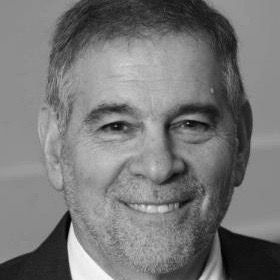The announcement that Richard Joel has been named as president of Yeshiva University (YU) is an important and salutary development in American Jewish life. Joel is a gifted leader, able spokesman and prolific fundraiser. He has been able to establish the national Hillel organization which he heads as a “big tent” for American Jews — one that embraces unaffiliated and under-affiliated Jews at a vital stage in their lives (college), while also serving the most committed Jews who enter its buildings to eat, study, pray and socialize with other Jews.
As such, Hillel is perhaps the most successful model of pluralism in American Jewish life. For this reason, Joel’s selection as president of YU is such interesting and, to our minds, good news. The fact that Joel neither sought the job nor came from within the institution (though he once served as a dean of its law school) should grant him a larger degree of autonomy than other internal candidates would have possessed. And he will need as much latitude as possible to succeed in a position that has not been easily filled.
For the past few years, YU could not find a successor to its current President Rabbi Norman Lamm, a man who is both a successful university president and a rosh yeshiva. This relates to one of the most intriguing institutional features of YU. It houses a wide range of secular academic programs, including a law school and medical school — as well as a seminary to train rabbis. In recent years, the tension between YU’s dual functions of Torah u-Madda — of Torah learning and secular studies — has increased. This has been prompted by a broader sociological and theological trend: the rightward drift of contemporary Orthodoxy toward more punctilious ritual observance and less engagement with the surrounding secular world. At a more local level, some of the rabbis in YU’s rabbinical seminary — the Rabbi Isaac Elchanan Rabbinical Seminary (RIETS) — apparently feel less and less comfortable cohabitating with the scientists, humanists, lawyers and doctors — some of whom are observant and some not — who lend YU its luster in the American academy.
This discomfort was one of the reasons that Lamm, a learned rabbi and distinguished scholar, proved so difficult to replace. He was both a legitimate head of seminary and a seasoned college administrator, a man who acknowledged and skillfully negotiated the two distinct cultures of YU.
A number of possible successors to Lamm either ruled themselves out or did not quite meet or could not quite fulfill all the expectations of contemporary Orthodoxy. Rabbi Jacob J. Schacter, a noted scholar and one-time head of Manhattan’s Jewish Center, was an obvious candidate, but declined to put himself forward, perhaps in order not to provoke a battle with YU’s traditionalist rabbis. Dov Zackheim, the senior Pentagon official and defense analyst, declined the position, in part because of his role in canceling U.S. funding for an Israeli fighter jet project became controversial. That Joel became the consensus candidate of the a search committee sends an interesting set of messages.
First, YU has apparently decided to divide the tasks of president and head of seminary. Lamm will keep the title of rosh yeshiva for the present time. Second, YU has chosen as its next president an Orthodox Jew who is not a rabbi, but a layman — a man who has spent his professional life outside of the yeshiva world and the Orthodox establishment. Other candidates for the YU presidency, those more internal to the YU than Joel, might have felt more beholden to the authority of the rabbis at RIETS. Ironically, Joel, who makes no claims to greatness as a Torah sage, may feel more at liberty to make key strategic choices affecting YU’s direction, and perhaps that of modern Orthodoxy at large.
If his past record is any indication, then Joel will push toward creating an inclusive and pluralistic Orthodox institution. As head of Hillel, he employed rabbis of all denominations and both genders to teach Jewish students — and to teach them Torah. Indeed, in practice and in principle, Joel is committed to Jewish pluralism, to welcoming Jews of all denominations and perspectives. Presumably, he made no secret of these views and was selected by the search committee because of — not despite — them.
The challenge Joel faces will be to foster a culture of tolerance within YU, mindful of its diverse missions and constituencies. Joel also has the potential to cultivate more civility between his new institution and the non-Orthodox world. This is a most promising moment — one that should be evaluated in the same light as the ascension of Rabbi David Ellenson to the presidency of Hebrew Union College-Jewish Institute of Religion, the Reform rabbinical seminary. The fact that Ellenson came from an Orthodox background — and, significantly, was feted at an inauguration dinner that was kosher — symbolizes a growing traditionalism within the Reform movement. Seen together, the selections of Ellenson and Joel suggest that the potential for genuine conversation across the American Jewish denominational spectrum may be closer at hand.
Michael Berenbaum is director of the Sigi Ziering Institute at the University of Judaism. David Myers is a professor of Jewish history and vice chair of the history department at UCLA.























 More news and opinions than at a Shabbat dinner, right in your inbox.
More news and opinions than at a Shabbat dinner, right in your inbox.